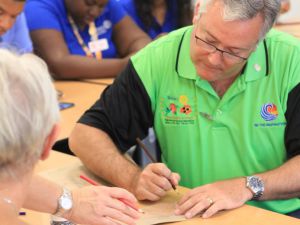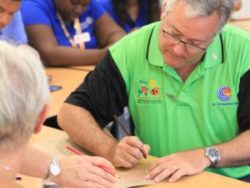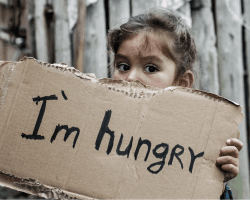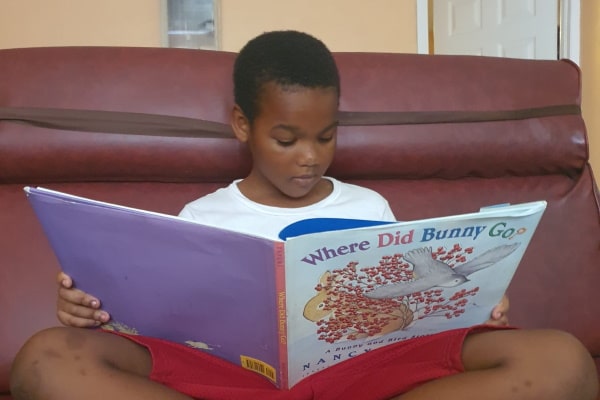(CNS Local Life): The Department of Community Rehabilitation has said that the ongoing ‘lunch-bag’ programme, which is supported and funded by the local branch of the Rotaract Club, has had a positive impact on the clients of the Mental Health court. For five years volunteers have been packing lunches decorated with motivational messages for the people due to appear at the monthly court session, which the DCR said has proved an incentive for people to turn up. DCR Probation Officer Natasha Williams said it has made clients more compliant with the court system and bail conditions.
“Clients love the initiative and are eager to have their lunch after court,” she said, adding that it may in some cases be the only meal the people get that day. The meal contains a patty, fruit gummies, cookies, juice and an apple.
A visit from the district governor for Rotary International, Dr Patrick Adizua, last week gave the club a chance to show off this project, which impressed the visitor.
“We as Rotarians are involved in service to humanity constantly; that’s what we do and we make a lot of difference in our communities, both locally and overseas,” said Dr Adizua. “It is quite a fantastic project and knowing that young people are engaged in projects of this sort, we have a lot of hope to look for the future.”
Community Service Director for the Rotaract Club of Grand Cayman, Jose Ardila, who organises the lunches and delivers them to the department the morning before court, explained the motivation behind the project.
“While our Brown Paper Bag initiative is simple in nature, it provides a ‘pick me up’ to those that are facing troubling, difficult circumstances. It assists the department in building trust and a positive relationship between client and department, which promotes effective resolutions, supervised progress and decreased reoffending,” he said.
The specialist Mental Health Court has become an important part of the local judicial system and has helped to identify clients with severe and persistent mental illness earlier in the court process. It has also given them a more appropriate place for their cases to be heard. The DCR runs a number of programmes that address psycho-social and rehabilitative needs that help clients with mental health challenges to cope with the risks of re-offending during any sentence supervision order and after they are released by the court.






